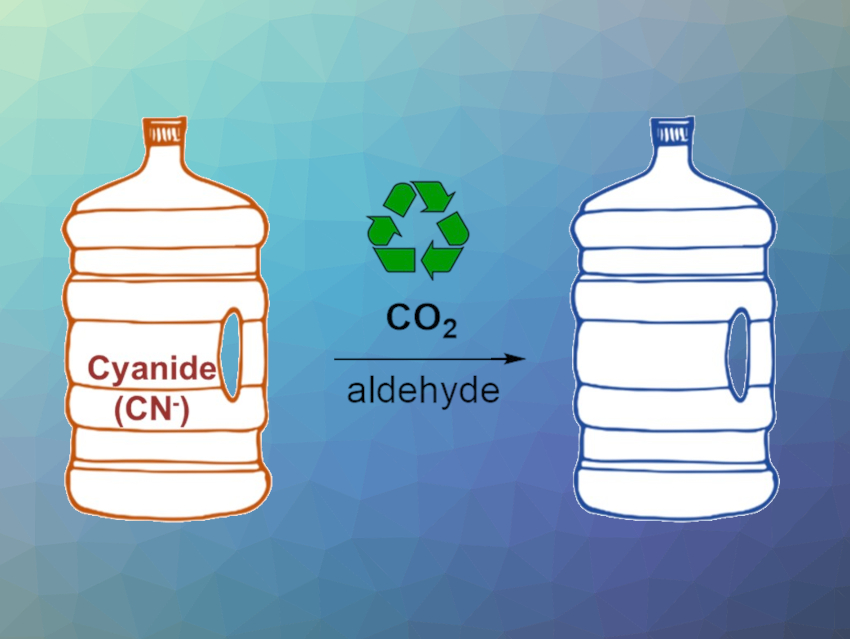Water purification is important for ensuring the supply of safe, clean water. Energy-efficient or energy-neutral water purification processes would be ideal for sustainability. Cyanide is a toxic chemical that needs to be removed from wastewater created by, e.g., gold extraction and electroplating. However, it is also a useful chemical feedstock for industry. Thus, an approach to removing cyanide from water that allows its recovery would be useful.
Ji-Woong Lee, University of Copenhagen, Denmark, and colleagues have developed a CO2-mediated wastewater treatment process that can remove cyanide non-destructively. The team added 2-methoxybenzaldehyde to cyanide solutions under a CO2 atmosphere at room temperature. In the presence of CO2, the aldehyde quickly reacts with cyanide ions to give an insoluble cyanohydrin. This species can be removed via a simple filtration, thus providing purified water.
According to the researchers, CO2 promotes the reaction between cyanide and the aldehyde and shifts the equilibrium towards the cyanohydrin. The team showed that the process can effectively remove up to 97 % of cyanide from water under practical conditions without any toxic oxidants or a need for membrane filtration.
- CO2‐Mediated Non‐Destructive Cyanide Wastewater Treatment,
Allan R. Petersen, Martin Juhl, Aleksa Petrovic, Ji-Woong Lee,
Eur. J. Org. Chem. 2021.
https://doi.org/10.1002/ejoc.202100997




